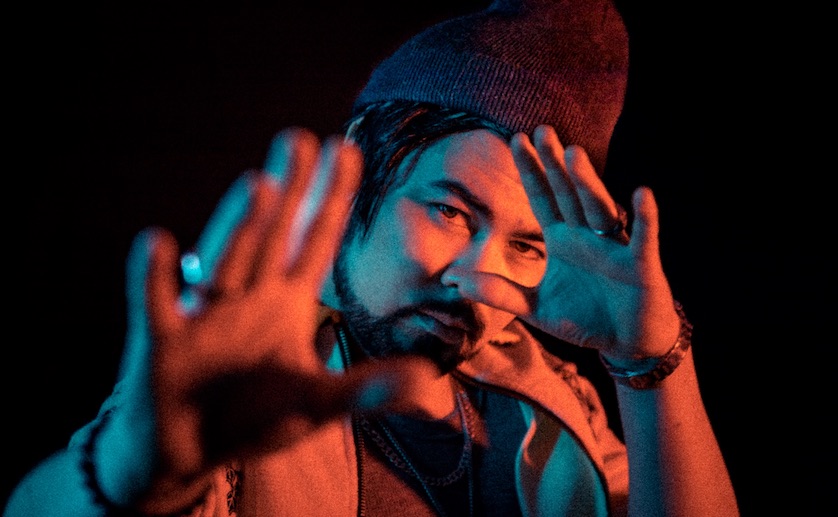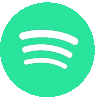
With his anticipated new album, Wabi-Sabi expected to drop later this summer via Brooklyn-based Trash Casual Records, indie producer Papi Shiitake discusses his musical upbringing, current path as a solo artist, and future plans with Variance’s Ethan Ijumba - following the release of his latest single, “Do What You Say.”
Ethan Ijumba:
With Wabi Sabi dropping this summer, I’m curious how you arrived here as an artist...
Papi:
Well, it's been a really long musical journey because I've been playing music pretty much my whole life - and kind of always had this quest - I've been in a lot of projects before. For this project, it’s really really cool because it was really the first time I felt good just being myself and leaning in as an artist. I try to dig for honesty and really try to get deeper and deeper ‘cause there are all these layers as an artist that you're trying to get rid of to really get as close to the meaning of the art you're trying to create. So I think that's kind of where I am now - and I'm feeling good about it.
EI:
Did you listen to a lot of music growing up? What inspired you to start making music?
PS:
It's kind of interesting because I never really listened to much music throughout most of my childhood. Maybe No Doubt when I was a teenager and then, I didn't start really listening until I decided I wanted to play music. Then I was super into pop-punk, like Blink-182-type shit. I think that was the first influence. I’m not talking about the high energy, but like the melodic stuff. That's the first time I was like, “oh man... this is what I wanna do”.
Also music runs in my family - so I think it's just kind of an ‘in my blood situation’. I've honestly tried to stop playing music multiple times in my life and I always come back to it. It's like a love that just won't go away.
EI:
When did it click and you decided you were committing to this life?
PS:
You know, what happened was - I'm from a really small town in Virginia and there were generally no places to play. But my first show was a Battle of the Bands that I actually won. So I was like, oh man, “this is it, this is me” - you know? It was kind of interesting because it was almost like a competitive sport because most of the shows I played were these Battle of the Bands-type shows. So it was always a competition. So when I left my hometown and started playing regular shows, I had this super-competitive energy like I had to win.
EI:
How did the Papi Shiitake entity emerge?
PS:
Papi Shiitake started with a co-writer, Ryan Sieloff, whom I used to play in a band with when I lived in San Diego. He would send me weird jams and song ideas that he was doing. Eventually he sent me one out of the blue after I hadn't talked to him in a really long time. I immediately put vocals over, I didn't even ask him, you know what it was, what was going on, I was just feeling the vibe so hard. I thought it was by his band or something but it was just him. So then we started seriously collaborating and recording more songs. Later we signed to Trash Casual but Ryan decided that he didn't really want to be in the band - he preferred to be more of a writer. By that point the gears were already in motion and Papi Shiitake was the two of us. We started putting stuff out but I was really in the forefront. Papi Shiitake is where for the first time I felt I was being honest and really feeling good being myself.
EI:
That makes sense. You were learning, growing, and developing yourself as an artist. It’s like the good kind of self-centered.
PS:
That's exactly it, Papi Shiitake has really become more than the music, but this universe of my imagination - all the things that I'm really into. Before we did the first EP we did a muppet video and then we did an animated video. I'm super into animated cartoons, then we did this new video, “Do What You Say” which started off as a good James Bond intro, and then it kind of morphed into something else. But I really love to collaborate with artists, giving them the freedom to breathe and to do what they do. Usually, it ends up working so much better than me trying to put my stamp on things.
EI:
I know it might be hard to pick from that but are there any that you're most proud of when it comes down to it? That you feel really means the most to you?
PS:
Oh, that's a tough one you know. For the last record I really love “Smile” because that was a moment for me. I thought that was going to be the single. It's always funny because the ones that I often really like are always the ones that I feel aren't the single. I think on this new record - “Do What You Say,” I'm really proud of that track. There's another song called “Unloving Ways,” which I'm super stoked about because it's a song that takes you on a journey that it keeps building. My favorite parts are towards the end - it's almost a departure in a way. I love songs that kind of transform and don't stay on the fucking groove or whatever it is.
EI:
In terms of collabs, who would you love to link up with down the line?
PS:
I mean in terms of dream collabs, you know I've always wanted to work with Mark Ronson's because I love his stuff, his vibe. When Amy Winehouse made Back To Black, I was obsessed with it. I'm a big fan of Kanye so I'd love to work with him. Gabe Wax is an amazing producer and mixer that I love to collab with, but I'm always looking for and finding new art, trying to figure out what it is.

EI:
Taking into account this universe you try to create through your art, are there any other ventures that you look to one day do aside from music?
PS:
Yeah, actually we did an animated video for Quarantine Dream and we're working on some animated shorts, almost like a series. So that's kind of fun. I also have this thing called Taki Taki. It's a vegan Korean barbecue. I was doing pop-ups around Brooklyn and Bushwick before the pandemic. So we're looking to get some Wabi Sabi sake, there are tons of ideas. I've got too many pots on the stove, you know what I mean? It's definitely more than just the music. I would love to get into film and that's why every little video is its own little, you know, kind of vignette of something that I'm really into.
EI:
Speaking on Quarantine Dream, you’ve said it was inspired by The Beach Boys and Velvet Underground. How does your upcoming album Wabi Sabi compare and contrast to that release?
PS:
Quarantine Dream was interesting because when I was writing and producing it I was really interested in preserving the sounds and really all of the vocals. On Quarantine Dream it really was focused on trying to perfect things sometimes, but I just wanted to see that moment of birth and hear that in the music as opposed to doing a ton of vocal takes. So for Wabi Sabi I really wanted to expand everything and really give this sort of richness, this you mommy that you didn't get on the first um on the first record. So there's more depth, it's expansive, the richness of it all, it's more colorful and there are various new scenes and colors to the whole thing. I really try to build a whole new world with Wabi Sabi. For example, the chicken that's on the first album cover for the first single cover is its own character and there are three other characters we built out of these characters that are in this Wabi Sabi world that’ll all make sense.
EI:
Was there any inspiration behind the artwork that you normally go into? Was it something that just comes out of your mind or did you get influenced by art from a specific artist’s style?
PS:
Yeah, so I realized my own limits and so with every release I'm always trying to find a new visual artist. So for the last one, we used someone from Argentina, this time we used this guy Cedron who is from China and I love anime, Japanese art, cutesy kuai stuff. So I started working with him, I saw some art that he had done that was with these really cute characters in this fantastical world and that's exactly what I'm talking about. So we started working together, he did the album cover, which was amazing. Then with the album cover, we developed these characters together and we're actually working on a music video together for a later single that I'm really stoked about. It's so awesome to work with another artist who has been listening to the music and then see where that takes them visually. And part of the logo for Wabi Sabi that's featured on the art is a Brazilian street artist named Pope Millionaire. So I try to bring these elements together that are almost opposing. Because Sidra would never be thinking of working with some street artist who does tags and throw-ups and stuff like that, but those two things together are just so cool to me. It's like Pope Millionaire is probably not going to be working with Sidra, but Papi Shiitake is the one who's bringing these two people together to work on this new stuff through this other filter.
EI:
So with that being said, you spoke on your singles that you're working with other artists with. Can you get a little more in-depth of what we can expect from these visuals?
PS:
Oh yeah, we're working on that. We're working on a 3D animated video kind of like Pixar-type shit like Kuma. I'm so stoked about it. I cannot wait to finish. It's like, these videos are always so fun for me because at the end I'm like yes, I've always wanted to do this and it’s fantastic
EI:
Regarding your songs, your newest track is titled, “Do What You Say”. You said it was one of those songs that you said you seem to finish before you can begin. How exactly was the composition process like for you in terms of its writing production when we came down to composing it?
PS:
Yeah, I had got one of these toys during the pandemic, there were all these companies giving away free instruments and stuff. So I had gotten this thing that was an emulation of this keyboard From the 70s made by Mattel and it's called optic in and one of the first things that you see the wrongs and so there was like these optical discs you were throwing, it would have like different kinds of samples. Instead of being keys, it's almost like a harpsichord you play like a minor or you can just play the chords and places like sequences. And so I got started with that, just playing around with that and found this cool vibe and then that inspired me just like I had found this awesome chord sequence that I was really in love with, but those two together and then the song just kind of effortlessly came out, you know? To me, those are the best, when you're able to capture that feeling that in a moment it can be so powerful. So once I had done that I let the song kind of go and I really thought the song was going to be on the album. Then when I was mixing it I had my cousin over where I was just playing around with the song showing what was up and I was throwing some 808 kicks and snares or something like that. After I did, I was like, oh my gosh, it sounds amazing. So then it really found a new life once I started to I added some organs and kind of became a new thing like Pokemon on how it evolved.
EI:
So with that being said on how you spoke about looking back at what you released and looking forward to what we can expect... Now that quarantine is ending, do you have any plans for upcoming live shows and forthcoming singles?
PS:
Yeah, we're about to release another single, which I'm really stoked about and I'm playing a bunch of shows throughout Brooklyn this summer. It's really cool, too, since the pandemic, people are nostalgic about the live show experience. Come out!












